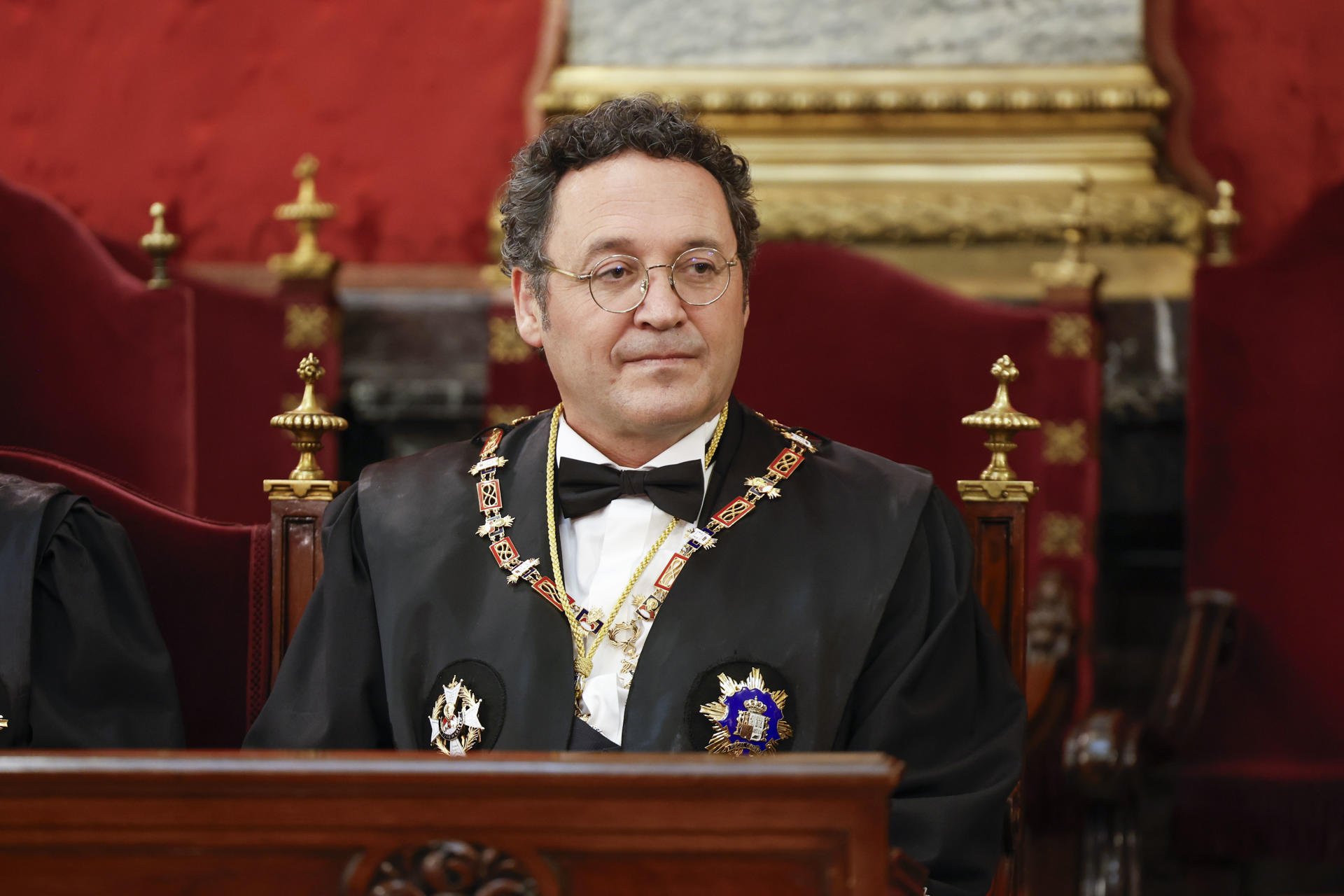A turbulent day at the office of the prosecutor general of the Spanish state, with all eyes closely fixed on the application of the amnesty law, on the day it has come into force. A latent tension can be seen on the horizon between Álvaro García Ortiz and the prosecutors of the Supreme Court who made the case against the pro-independence Catalan leaders in the 2019 trial. On the one hand, Javier Zaragoza, Jaime Moreno, Consuelo Madrigal and Fidel Cadena continue to oppose the inclusion of offences of misappropriation of public funds in the scope of the new law and are therefore opposed to the granting of an amnesty for the offences in this category attributed to Carles Puigdemont and Oriol Junqueras, arguing that they committed their crimes with a profit motive and also that they affected the financial interests of the European Union. On the other hand, the prosecutor general, who this morning met with Zaragoza and Moreno, has made a direct request to the four prosecutors: that they draw up a legal report (called a "procedural report") that specifically responds to the questions raised by judges Manuel Marchena and Pablo Llarena, as prosecution service sources have told ElNacional.cat. The same sources stress that García Ortiz has in no way told them the line that the report should take, since the chief prosecutor chooses not to take a position yet. All of this comes hours after the amnesty law was published in the official Spanish government gazette.
And why is the chief prosecutor asking for a new opinion? Álvaro García Ortiz considers that the document that was sent to him two weeks ago addresses the amnesty law in "general" and does not serve to respond to the specific requests of the Supreme Court. Rather, it raises a series of issues over which Supreme Court prosecutors are not even competent, such as the submission of preliminary questions to the European Court of Justice and the alleged unconstitutionality of the law. Thus, they are now being asked for a legal judgement and not opinions.
Thus, the next step in an accelerated timeline will be the preparation of this new report requested by the prosecutor general. Once the Supreme Court prosecutors have presented their report, in which they will reiterate that Puigdemont and Junqueras cannot be amnestied for their misuse of public funds, García Ortiz will reveal his own position. It is taken for granted that he will be in favour of amnestying the leaders of the independence process. In the event that his argument is contrary to that of the prosecutors of the Supreme Court, he will have to make a report presenting his own thesis with "legal arguments", according to prosecution sources. In the event that the prosecutors of the Supreme Court do not share the conclusion of Álvaro García Ortiz, which is the most likely scenario, they will be able to refer to Article 27 of the Statute of the Public Prosecutor's Office: they will prepare a new report, which will be debated together with that of the prosecutor general, in the Board of Senior Prosecutors. And here could come the collision. García Ortiz will listen to all the positions and express his final decision, which "may or may not coincide with the majority opinion", as prosecution sources tell ElNacional.cat. And the fact is that the chief prosecutor always has the last word.
Once he has defined the thesis that the public prosecutor's office will defend, there will be two possible paths. One scenario is for the Supreme Court prosecutors to bring a report signed by them stating their discrepancy and making it clear that they are doing so in application of Article 27. The other scenario is for the state prosecutor general to replace thse senior prosecutors with others who will defend the thesis he has marked out. "It is not an arbitrary decision, everything is in the Statute", the same voices say. Article 27 is clear: "If the superior ratifies his instructions, he will set this down in written argument with the explicit exoneration of the responsibilities that could derive from compliance with them, or he will entrust another prosecutor to take over the matter to which he refers".
A final consideration: this whole process must be resolved in five working days, which is the deadline that Marchena and Llarena have set for the parties to pronounce on the "applicability or inapplicability" of the amnesty in their respective cases. Therefore, the final day for the prosecutors to have a definitive position is Tuesday, June 18th.
Supreme Court prosecutors, opposed to amnestying the misuse of funds offences
In the 127-page report they presented twelve days ago, the prosecutors of the Supreme Court maintained that in misuse of funds offences committed during the organization of the referendum of October 1st, 2027, there was "political and patrimonial" enrichment of the defendants, and for this reason, they maintain that the offences cannot be amnestied. They assert that on October 1st, 2017 "the patrimonial benefit existed" because, "with the intention of profit, they appropriated public funds" and "dedicated them in accordance with their political, personal and patrimonial benefit to resolve the obligations illegally contracted with those who had been awarded public contracts." Furthermore, the prosecutors argue that the amnesty “affects the financial interests of the EU in the general framework of the fight against corruption.”
Pablo Llarena asks for “particular reference” to misuse of funds
Investigating judge Pablo Llarena also placed his own magnifying glass on the crime of misappropriation of funds. In his ruling, three pages long, he asks the parties to provide a "particular reference" on whether the facts relating to this crime can "be considered excluded from the scope of application of the law due to the specific provision of the legislator included in Article 2e". Specifically, this section of the law excludes "actions classified as crimes that will affect the financial interests of the European Union".

